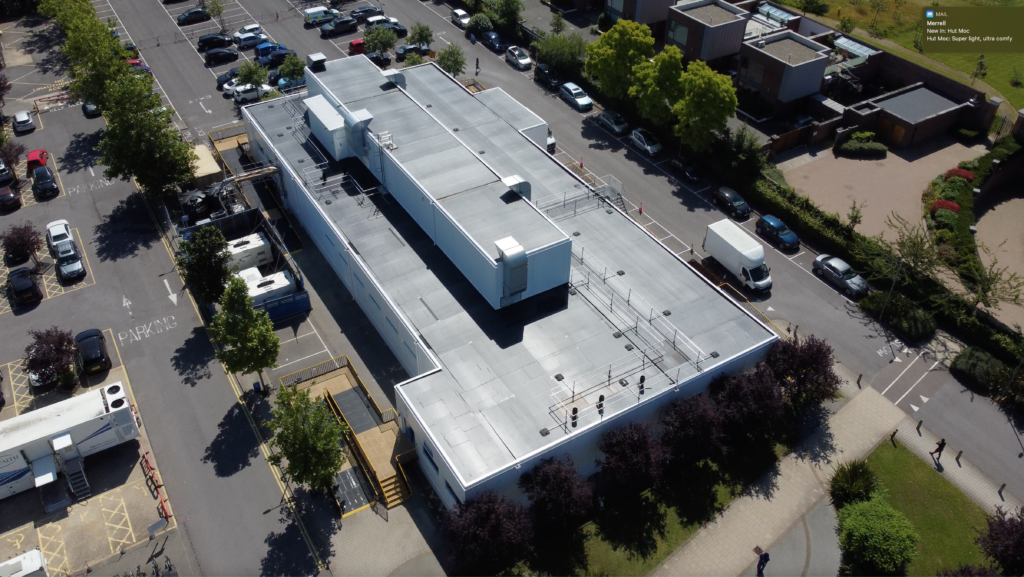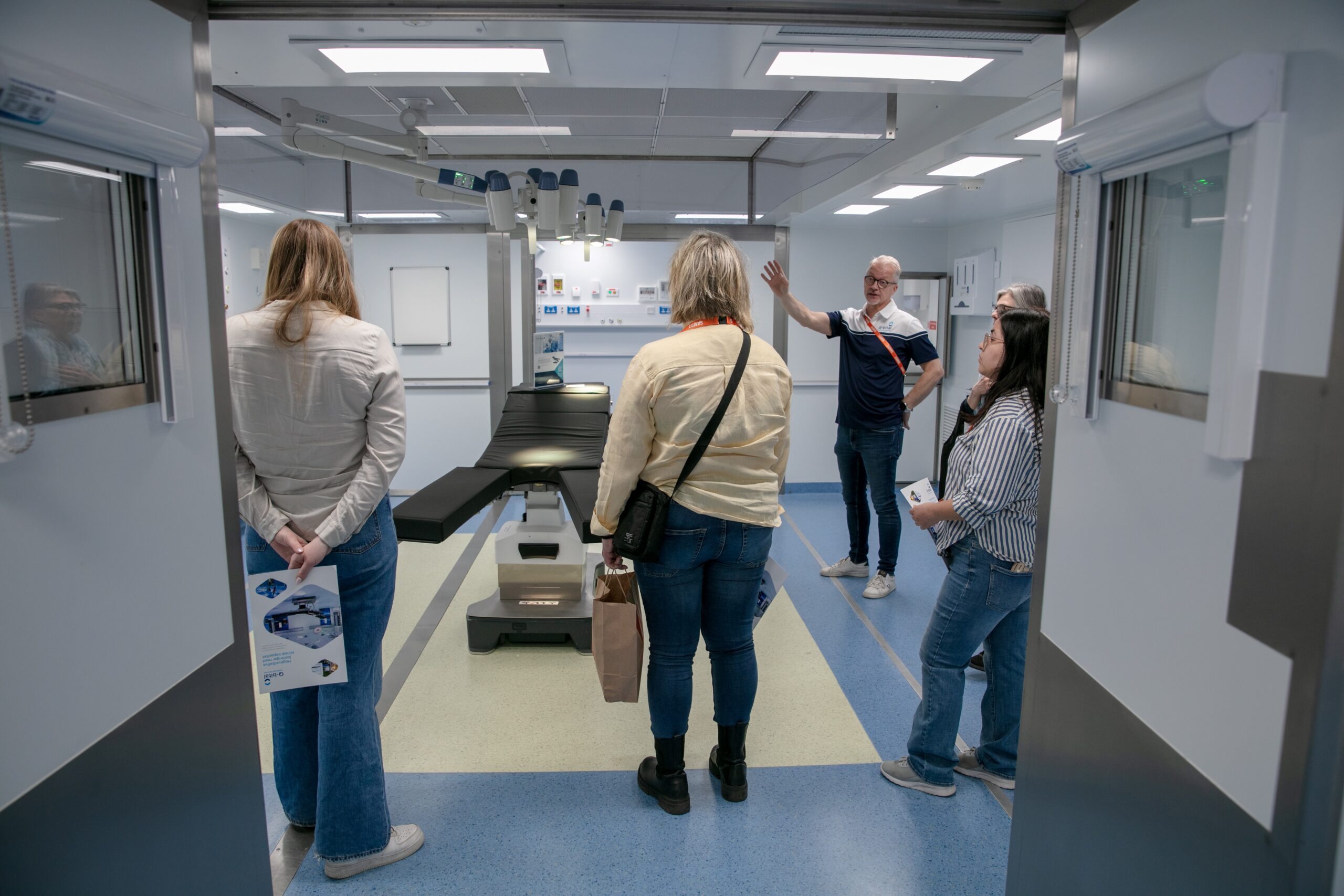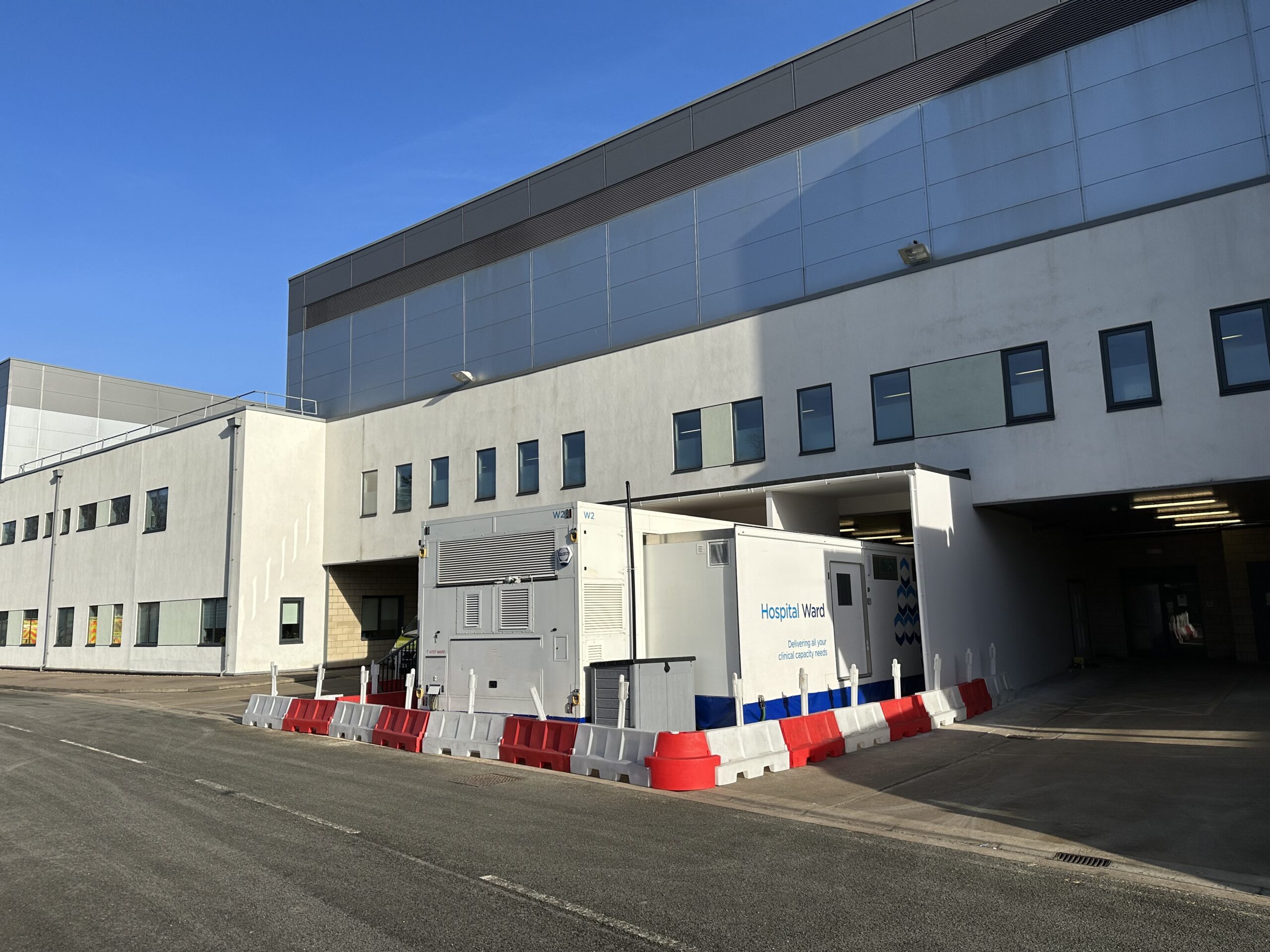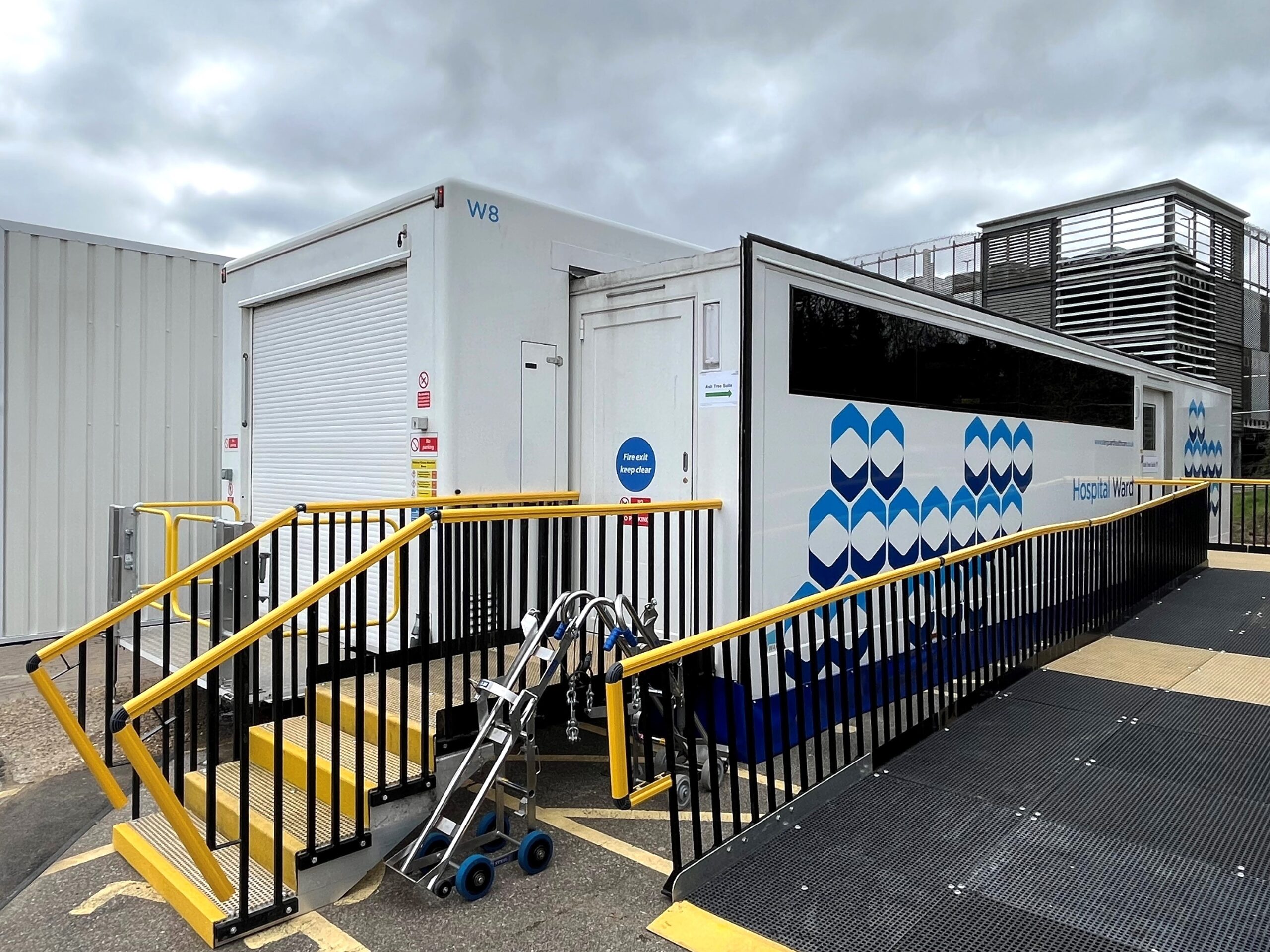The recent COVID-19 pandemic created many challenges for healthcare providers worldwide, with an increased need for ICU beds and heightened focus on maximising infection control. Healthcare infrastructure played a pivotal role in determining the response to the pandemic. The impossibility of adapting and repurposing many healthcare buildings and the need to facilitate greater measures of infection control meant that elective care had to be suspended in order to create critical ICU bed-space, leaving patients in need of surgery. This created a need for standalone spaces away from the main hospital site that would allow elective care to resume even during times of emergency. This highlighted the importance of flexible Healthcare Spaces that can be repurposed to the unique needs of the hospital.
Over recent years is has become clear that regenerative and future-proof infrastructure solutions are required in order to sustainably and efficiently adapt to the changing needs of each hospital over time. Modern methods of construction (MMC) are an effective alternative to traditional bricks-and-mortar, with facilities installed in a matter of weeks as opposed to years. With MMC, particularly modular construction, the majority of the construction (90%) is conducted off-site in a factory, reducing onsite pollution and disruption and improving health and safety for workers. Sustainability is an increasingly important consideration in almost every decision that a healthcare provider must make, and no wonder,
if the global healthcare sector were a country, it would be the fifth largest emitter of greenhouse gases on the planet.
Modular healthcare buildings can be installed on the hospital estate, away from the main acute site to maximise infection control. These facilities can be bespoke to the needs of the healthcare provider and can be installed to maintain and increase capacity during times of increased demand or refurbishment. These facilities can include
operating rooms
,
CSSD departments
,
hospital wards
and
much more
. A modular surgical hub,
The Surgical Treatment Centre
, was recently designed and installed by
Q-bital Healthcare Solutions
in collaboration with St George’s University Hospital NHS Foundation Trust in order to provide additional surgical capacity and tackle mounting elective care backlogs. The surgical complex was delivered in just five months and consists of four laminar flow operating rooms, corresponding hospital wards, consulting rooms, staff welfare facilities and utility areas. Additionally, infection control has been maximised as the standalone facility remains separate from the main hospital building, enabling safeguarding by ensuring that only COVID-negative patients can enter. The treatment centre provides care for hospitals in the South West London area and is multi-speciality, performing high-volume, low complexity procedures, from general surgery to urology and gynaecology. The facility is capable of completing in excess of 120 procedures weekly and has been hugely successful in creating positive patient pathways throughout each stage of the treatment process.
 A
surgical hub
is a protected facility that is dedicated specifically to undertaking planned care procedures, allowing them to continue when emergency pressures arise, such as an influx of demand on emergency departments and pandemics. What’s more, with dedicated staff welfare areas and improved hours, surgical hubs have been
proven
to be an essential tool in improving staff wellbeing and therefore retention, a crucial factor in combatting the current
workforce challenges
. Moreover, the suspension of elective care in 2020 meant that there was a significant reduction in training opportunities for surgical trainees, only exacerbating workforce issues. However, through the introduction of The Surgical Treatment Centre in London and the dedication to elective care, training opportunities were enhanced, with one urology trainee completing 297 operations in the facility over a five month period. This has highlighted the multifarious benefits of modular healthcare facilities in not only existing as flexible Healthcare Spaces to increase capacity, but also an essential tool for the development and the retention of healthcare staff.
A
surgical hub
is a protected facility that is dedicated specifically to undertaking planned care procedures, allowing them to continue when emergency pressures arise, such as an influx of demand on emergency departments and pandemics. What’s more, with dedicated staff welfare areas and improved hours, surgical hubs have been
proven
to be an essential tool in improving staff wellbeing and therefore retention, a crucial factor in combatting the current
workforce challenges
. Moreover, the suspension of elective care in 2020 meant that there was a significant reduction in training opportunities for surgical trainees, only exacerbating workforce issues. However, through the introduction of The Surgical Treatment Centre in London and the dedication to elective care, training opportunities were enhanced, with one urology trainee completing 297 operations in the facility over a five month period. This has highlighted the multifarious benefits of modular healthcare facilities in not only existing as flexible Healthcare Spaces to increase capacity, but also an essential tool for the development and the retention of healthcare staff.
Flexible Healthcare Spaces do not need to be entirely built out of modular components, indeed mixed-modality healthcare solutions are an efficient alternative to increasing hospital capacity in a short time frame. Mixed-modality solutions consist of both mobile and modular Healthcare Spaces, such as the surgical facility installed at Derriford Hospital, Plymouth, UK. Here, Q-bital designed and installed a solution that consisted of two mobile laminar flow operating rooms and a modular support hub that contained wards and staff welfare areas. The facility was designed in collaboration with experienced clinical teams from Q-bital, and is successful in undertaking a range of ophthalmological procedures including cataracts, dacryocystorhinostomy, ectropion and blepharoplasty. Around 8-10 vitrectomies are completed per week and 14 cataract procedures are completed daily. The mobile operating rooms allowed this facility to be installed in an even shorter time frame and, over time, they can be removed and replaced with an alternative mobile solution that best meets the needs of the hospital at the time. Through incorporating both mobile and modular elements in this design, the surgical complex was able to remain separate from the main acute site, maximising infection control whilst also tackling mounting surgical backlogs faced by the Trust.
The Clinical Director at the hospital stated, “We were experiencing an issue with room capacity across the whole hospital, which meant that the number of sessions we were able to deliver within our previous location each week dropped from 20 to 14. This new facility has been a very good step forward in terms of meeting the expectations of our patients, as we dedicate one room to high-volume cataract and the other to sub-specialty treatments”.
Augmenting the hospital estate can be efficiently achieved through the use of modular infrastructure, whether that be through the installation of mobile operating rooms with corresponding modular support areas, or through bespoke modular surgical facilities. MMC are a cost-efficient and sustainable way to improve hospital throughput and staff welfare. What’s more, with a life span of up to 50 years, modular construction projects can be repurposed up to 20 times, enhancing the sustainability efforts of the hospital.
Henk Driebergen, Country Manager for the BeNeLux and France region at Q-bital said, “The benefits of using modular construction in the hospital estate are endless, allowing healthcare providers to maximise on cost savings and minimise the overall carbon footprint. When choosing to rent a modular Healthcare Space, all turnkey services can be provided and costs are shifted from CAPEX, creating financial security for the duration of a project, no small print and no surprises afterwards.”



Q-bital Healthcare Solutions
Unit 1144 Regent Court, The Square, Gloucester Business Park, Gloucester, GL3 4AD
